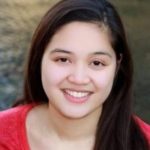Dr. Pablo Rodriguez, an OB/GYN, doesn’t have a typical office.
Inside are rows of hanging plaques and accolades, a photo of him with former President Bill Clinton, and a set of microphones, connected to a radio broadcasting system. A sign that says “Latino Public Radio” hangs above on the back wall.
As I sit across from him, he shares his story of how it all began.
In 2005, Dr. Rodriguez was heavily injured when a drunk driver crashed into his car. The accident left him with broken bones and radial nerve palsy in his right hand. For three weeks, he remained in a coma. His survival was a miracle. After recovering, he still went to his office each day but was unable to see patients.
That’s when he devoted himself to the radio.
Under an existing radio station, “Exitos 88.1 FM,” Dr. Rodriguez and community partners transformed the programming from simple entertainment to one of medical information and awareness.
The result was “Latino Public Radio” (LPR), a nonprofit organization whose mission is to disseminate news and education to the Latino communities in Rhode Island. From health literacy to politics, business to daily life, LPR seeks to inform their listeners and invite intelligent dialogue and discussion about issues impacting minority communities.
In the clinic, providers engage patients in health decisions each day. Whether from news or family members, media or magazines, people listen, read and analyze information about their health. A 2008 Pew Hispanic Center Survey of Latino adults, for example, showed that 83% reported obtaining health information from not only television and the Internet, but also the radio.
If patients are unable to understand their diagnoses or conditions, their medications or management, it can negatively impact their health. If they don’t know what health services are available or accessible, they won’t be able to use those services. Dr. Rodriguez emphasizes how low health literacy can be a strong predictor of one’s health.
This is where his radio show can help fill the gaps. Since 2005, LPR has grown and evolved significantly. Every morning, from 9 to 10 a.m., Dr. Rodriguez goes live on air, presenting a health topic such as IUDs or contraception. On his show, Dr. Rodriguez invites medical students to come on air and discuss a topic too.
“I want them to present complex topics in a simple way,” says Dr. Rodriguez.
As part of the OG/GYN clerkship, students can produce content for the show. They practice transforming multifaceted, complicated health issues into digestible information for the lay public. In turn, listeners can receive health news and knowledge in a way they can understand. Dr. Rodriguez advises students to use images and concepts that are familiar to the public. He provides an example.
“Pretend a room is covered with wallpaper,” Dr. Rodriguez begins, as if telling a story. “Each month, an egg can land inside the room, or not. If no egg lands inside the room, the wallpaper peels off. If yes, the wallpaper stays.”
With that, Dr. Rodriguez uses the image of wallpaper to represent the endometrium, and explains ovulation in a way that is understandable for people with little to no medical background.
To further increase health education, novel approaches are needed.
This is where “ESCUCHE” comes in: “Evaluating the Spanish Radio Community’s Understanding of Clinical Research and Health Topics.” ESCUCHE, which is Spanish for “listen,” was recently born out of a collaboration between Dr. Rodriguez, Latino Public Radio, Women & Infants Hospital, The Warren Alpert Medical School of Brown University, and leaders from Rhode Island communities. Made possible by a national grant, ESCUCHE was a series of 10 radio shows broadcast live with call-in portions for questions. The community advisory board helped identify health topic areas such as heart disease, diabetes, asthma, breast cancer, and HIV. Fifty Spanish-speaking radio listeners were enrolled. The goal was to increase health and science literacy. Overall, after an analysis of the pre-test and post-test results, ESCUCHE demonstrated that a radio program format is indeed an effective way to increase health knowledge among listeners, particularly the Spanish-speaking radio audience.
Similar programs include La Clinica del Pueblo, a health education collaboration that involves a weekly radio show for Latino communities in North Carolina. The initiative addressed childhood and adult health, safety, and health care utilization. Results showed a statistically significant increase in medical knowledge among listeners.
Truth is important. Myths and misconceptions about medical information are often propagated in the media. Speaking about reproductive health, for example, Dr. Rodriguez says “it’s where fake news goes to live.”
He encourages people in the medical field to convey accurate information in an efficient and understandable way for the public, and for our own patients. In the future, he doesn’t see himself stopping. He hopes to continue reaching more communities across the nation, and to create high quality cultural and educational radio programs.
“I love my job,” he says.

